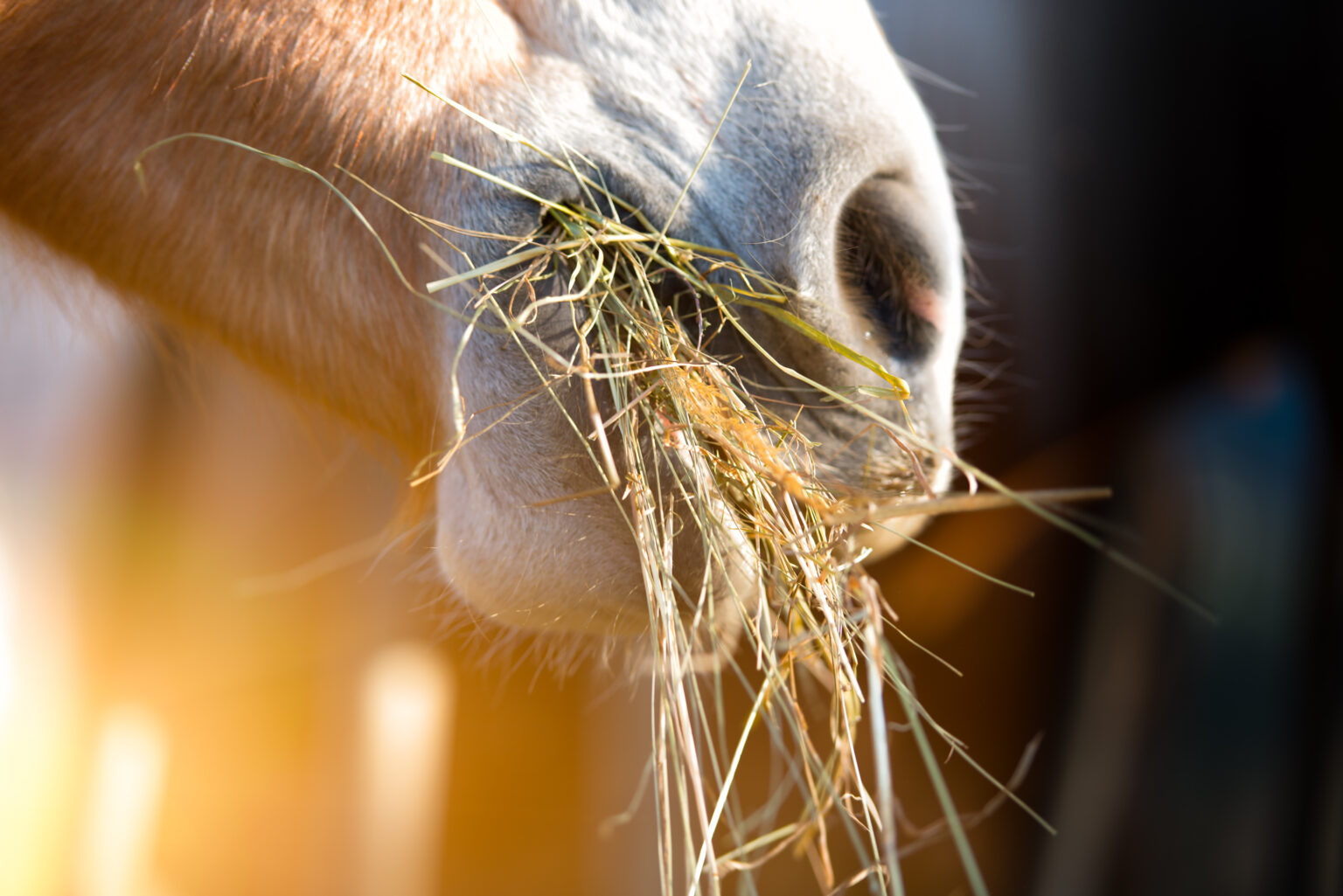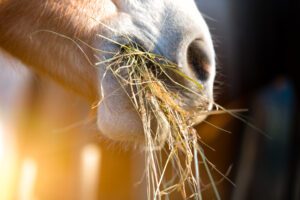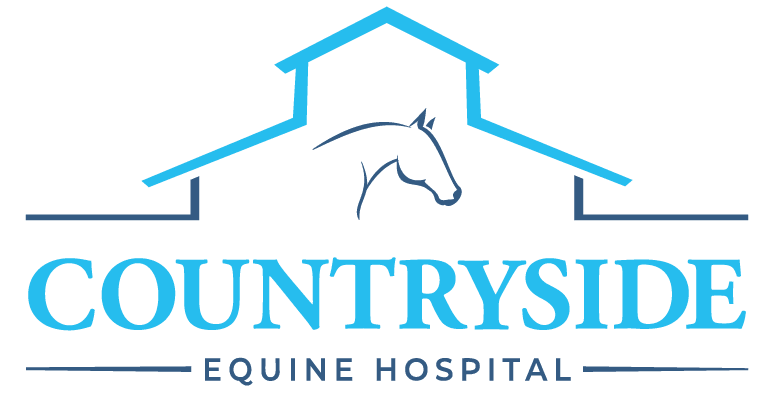Understanding Choke in Horses

Choke is one of the more alarming emergencies horse owners may face — and despite the name, it’s quite different from choking in humans. Horses are obligate nose breathers, meaning they can’t breathe out of their mouths, so when a horse experiences choke, they’re not suffocating, but they do need immediate veterinary attention to prevent potentially serious complications.
In this blog, we’ll explain what choke is, what causes it, how to recognize it, and how it’s treated — plus tips on preventing it in the first place.

What Is Choke in Horses?
Choke occurs when food or another material becomes lodged in a horse’s esophagus, preventing it from passing into the stomach. This blockage causes saliva, feed, and sometimes mucus to back up and discharge from the horse’s nostrils or mouth.
Unlike people, a horse can still breathe during a choke episode, because the obstruction is in the esophagus, not the windpipe (trachea). However, it is a serious condition that requires prompt attention to avoid dehydration, aspiration pneumonia, or esophageal damage.
Common Causes of Choke
Several factors can contribute to choke in horses, including:
- Eating too quickly
- Dry feed or pelleted rations without water
- Poor dental health (difficulty chewing properly)
- Inadequate water intake
- Foreign objects (like bedding, treats, or toys)
- Previous scarring or narrowing of the esophagus
- Older horses and those with dental issues are at higher risk.
Signs of Choke in Horses
Choke can happen suddenly, often during or right after eating. Look for these signs:
- Coughing or gagging while eating
- Nasal discharge with feed material or saliva
- Stretching the neck or appearing distressed
- Drooling excessively
- Trouble swallowing or chewing
- Lethargy or anxiety
If you notice these symptoms, do not attempt to force water or food into your horse. Call your veterinarian immediately.
What to Do If You Suspect Choke
- Remove all food and water immediately.
- Call your veterinarian right away.
- Keep your horse calm and quiet — excitement or movement can worsen the obstruction.
Your vet may:
- Sedate the horse to relax the esophagus
- Use a nasogastric tube to flush and dislodge the blockage
- Provide IV fluids, anti-inflammatories, and antibiotics if necessary
Monitor for signs of aspiration pneumonia, a potential complication if material was inhaled into the lungs
Aftercare and Recovery
Most horses recover well with prompt treatment, but some need follow-up care, including:
- Soft or soaked feed
- Anti-inflammatory and/or antibiotic medication
- Antibiotics if pneumonia is suspected
- Dental evaluation and treatment
Your vet may recommend diagnostics like endoscopy if your horse has had repeated choke episodes or if esophageal damage is suspected.
How to Prevent Choke
Prevention starts with understanding your horse’s eating habits and physical health. Try these tips:
- Soak pelleted or dry feeds to create a mash
- Feed smaller meals more frequently
- Provide free-choice access to clean water
- Keep up with regular dental exams
- Avoid feeding treats like apples or carrots in large pieces
Worried About Choke or Digestive Health?
At Countryside Equine Hospital, we provide emergency care and preventive wellness services — including dental exams and customized feeding plans — to help reduce your horse’s risk of choke and other gastrointestinal issues.
While equine choke may not block your horse’s breathing, it is a true veterinary emergency. Fast action, supportive care, and prevention strategies are key to minimizing the risks and ensuring your horse recovers safely.
For emergencies, call us right away at (770) 787-4711
To set up an oral health exam or dental float appointment, call us or Book an Appointment online today!
Recent Posts
About Us
For over 30 years, Countryside Equine Hospital has been a trusted partner for horse owners across Covington, GA. Founded by Dr. Carter, our practice began as a small operation in a garage and has grown into a state-of-the-art equine and small animal veterinary facility. Today, we combine our legacy of Southern hospitality with advanced equine medicine, offering services tailored to meet the unique needs of every horse, from top-performing athletes to beloved pasture companions.
